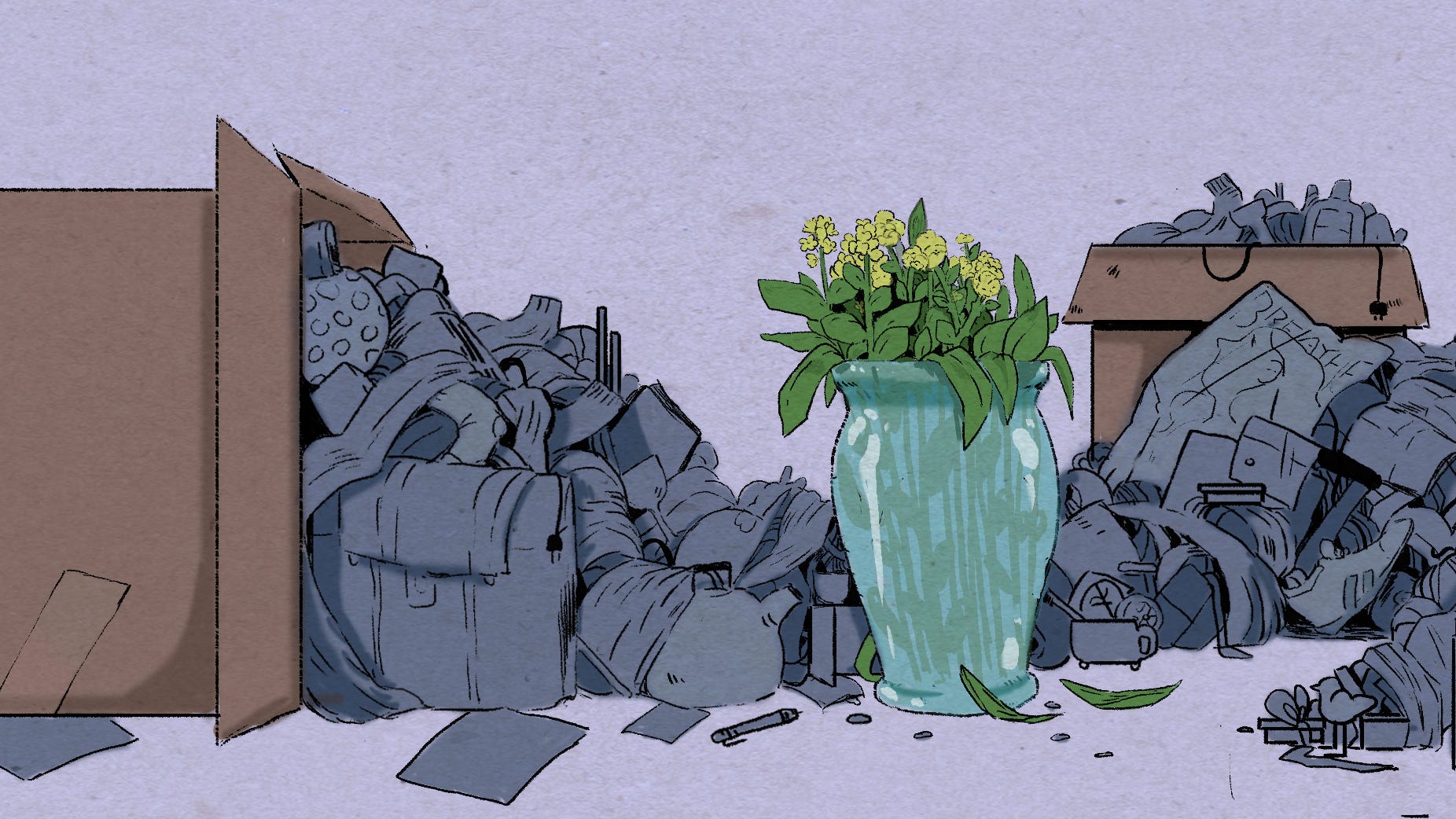Sorting Through a Hoarder’s Lifetime of Clutter, We Learned the Meaning of Love
When my boyfriend took a job helping a widow clean out her house, among the urine-soaked rugs and years-old piles of laundry, I saw our relationship in a new light.

Illustration by Gianna Meola
David Murphy rang the doorbell of a typical suburban house, set far back from a busy street amid trees and shrubs. An older woman opened the door, accompanied by a short, elderly dog and a tall, scruffy, younger one. “Come in, dear,” she said, leading him into a sitting room. Everywhere he looked, piles of clothes and bags of papers lined the walls. She’d used all the wall space and started hanging pictures from the bookshelves. Thick dust coated everything. And then, the smell hit him: dog urine.
Her name was Sandy Edgerly. Her gray hair twisted on each side of her head and met in a bun. Her shirt was buttoned to the neck, and she slid the house slippers from her feet the instant she sat down, pulling her legs up under her. As she explained the job – yard work, projects around the house, and some light housework – David surveyed the chaos surrounding them, considering the disconnect between what she was hiring him to do and what actually needed doing. She w…
Keep reading with a 7-day free trial
Subscribe to Narratively to keep reading this post and get 7 days of free access to the full post archives.


